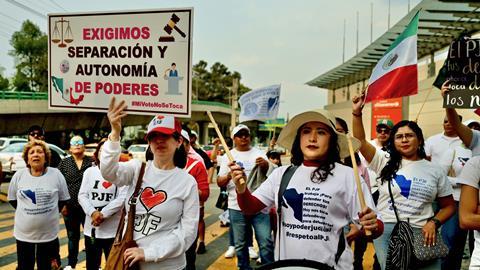Mexico's plan to become the first modern nation with a judiciary picked by popular election faces a new test today as the country's Supreme Court rules on a compromise proposal. Under the judicial reform, being pushed through by President Claudia Sheinbaum's governing Morena Party, all judicial posts in the Americas' third largest country by population and economy, will be subject to popular election from a government-approved list.
Controversy over the plans has prompted nationwide strikes by judges and protests by local and international professional bodies. This week, former president Ernest Zedillo described the reform as an attack on the rule of law and a lapse towards 'autocracy'.
Elections for the judges and magistrates are due to be carried out next year at a cost of some 13 billion pesos (£550m). Eight of the country's 11 Supreme Court judges have submitted their resignations and said they will not stand for elected office. However in a last ditch move to fend off the reform, the court is expected to vote today on a proposal that would confine the elections to the Supreme Court itself and a new electoral tribunal.
Zedillo, who served as president from 1994 to 2000, this week described the standoff as a constittutional crisis for the country.
A vote is expected today. However Sheinbaum attacked the court for attempting to over-rule the will of the electorate. 'Who is causing a constitutional problem? I don’t even want to call it a "crisis" because that’s what our adversaries call it,' she told journalists on Monday. 'Who is causing it? The Supreme Court.'
This article is now closed for comment.




























2 Readers' comments